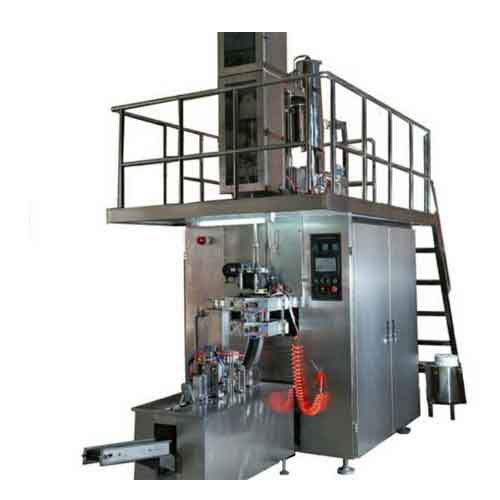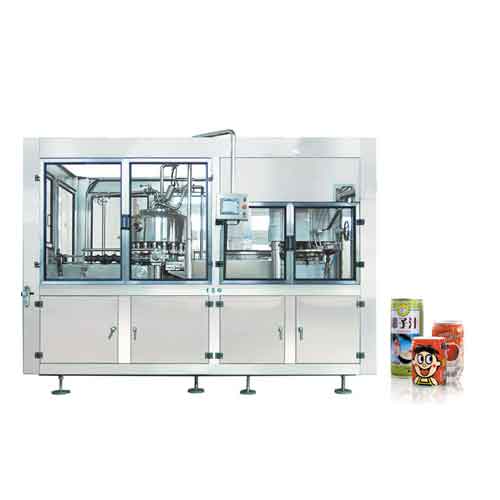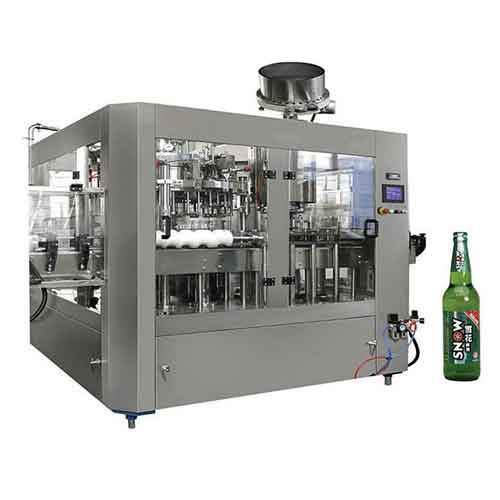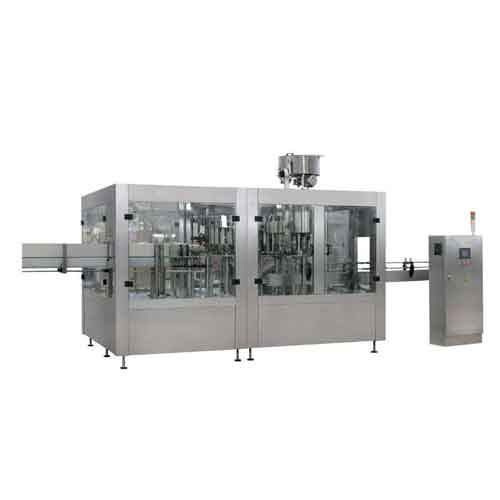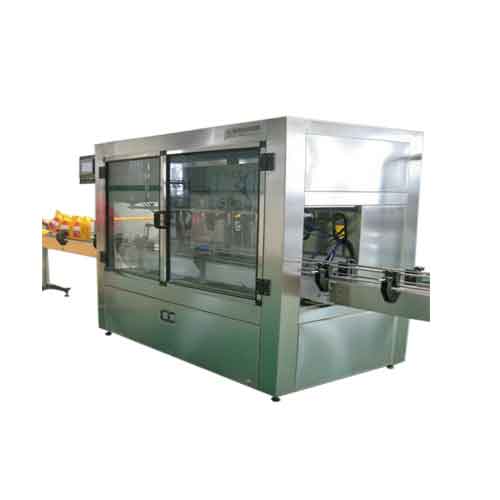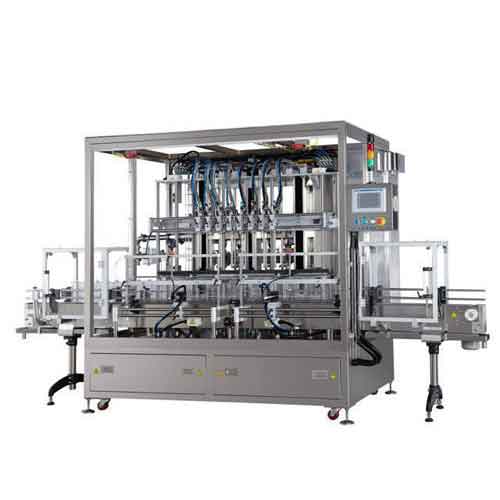In order to ensure the efficient and smooth operation of juice filling production line, the operation training of production line equipment operators is essential. What are the common equipment operation training items? According to my years of work experience in mechanical equipment, I suggest that the training content should include the following aspects.
1. Equipment Familiarization:
· Operators must undergo thorough training on each component of the juice filling production line.
· Understand the functionality, controls, and maintenance procedures for every machine in the production line.
· Hands-on sessions for familiarization with the equipment enhance practical knowledge.
2. Safety Protocols:
· Comprehensive training on safety measures and emergency procedures is crucial.
· Understand the location and operation of safety devices and emergency stops.
· Emphasize the importance of personal protective equipment (PPE) and adherence to safety guidelines.
3. Operational Procedures:
· In-depth training on the step-by-step operational procedures of the production line.
· Emphasis on proper start-up, shutdown, and routine operation protocols.
· Practical exercises to reinforce theoretical knowledge.
· Familiarize operators with the control panels and systems, explaining each parameter and its impact on the production process.
· Provide guidance on setting parameters such as temperature, pressure, and speed to achieve desired production outcomes.
4. Maintenance Basics:
· Operators should be trained in routine maintenance tasks to ensure equipment longevity.
· Learn to identify and address common issues promptly to minimize downtime.
· Understand the importance of regular cleaning, lubrication, and inspection routines.
5. Troubleshooting Skills:
· Equip operators with problem-solving skills to identify and resolve issues quickly.
· Simulate potential problems during training sessions to enhance practical troubleshooting abilities.
· Emphasize the importance of reporting and documenting any equipment irregularities.
6. Quality Control and Assurance:
· Training on quality control measures to ensure the production of high-quality juice.
· Understand and implement quality assurance protocols at each stage of the production process.
· Familiarity with quality testing equipment and procedures.
7. Hygiene and Sanitation:
· Highlight the significance of maintaining cleanliness and hygiene throughout the production area.
· Train operators on sanitation protocols to prevent contamination.
· Emphasize the use of proper cleaning agents and procedures.
8. Machine Calibration:
· In-depth training on calibrating machinery for different juice types and production requirements.
· Understand the impact of calibration on product quality and consistency.
· Regular calibration checks and adjustments as part of routine operations.
9. Emergency Response and Safety Measures:
· Conduct training on responding to emergencies, including how to use emergency stop systems and other safety measures.
· Equip operators with basic first aid skills to address minor injuries or provide initial assistance until professional help arrives.
10.Team Coordination:
· Foster effective communication and teamwork among operators.
· Simulate collaborative scenarios to enhance coordination during peak production times.
· Stress the importance of clear communication with maintenance and management teams.
11. Continuous Learning:
· Encourage operators to stay updated on industry trends and technological advancements.
· Provide opportunities for ongoing training sessions and workshops.
· Foster a culture of continuous improvement and adaptability.
12. Environmental and Regulatory Compliance:
· Familiarize operators with environmental and regulatory requirements related to juice production.
· Ensure compliance with local and international standards.
· Training on waste management and environmental responsibility.
13.Record-keeping and Documentation:
· Teach operators how to accurately record production data, including batch numbers, quantities, and quality assessments.
· Establish protocols for reporting any deviations from standard operating procedures or equipment malfunctions.
Through the above training arrangements, equipment operators can master the relevant operational skills more comprehensively, improve the operation efficiency of equipment, reduce safety risks, reduce downtime, and greatly improve the production efficiency and production capacity of enterprises.
Our company has been engaged in food machinery customization services since its establishment in 2014, according to customer needs for you to tailor suitable machinery and equipment, for more product information, please refer to: https://www.hnunmachinery.com/product/;Our expertise and advantages will bring you more opportunities and development space.
For personalized, industry-tailored advice and to explore state-of-the-art solutions, please don't hesitate to contact us at jodie@unmachinery.com or info@unmachinery.com
The following is my summary of other juice filling production related content for your reference, I hope you do not take a detour.
1.What are the models of juice filling machines?
2.How to maintain juice filling machines?
3.Exploration of juice filling production technology.
4.What equipment does juice filling production line need?
5.How to choose the right juice filling line?
6.How To Install And Debug Juice Filling Production Line?
7.Juice filling equipment operation safety knowledge
1. Equipment Familiarization:
· Operators must undergo thorough training on each component of the juice filling production line.
· Understand the functionality, controls, and maintenance procedures for every machine in the production line.
· Hands-on sessions for familiarization with the equipment enhance practical knowledge.
2. Safety Protocols:
· Comprehensive training on safety measures and emergency procedures is crucial.
· Understand the location and operation of safety devices and emergency stops.
· Emphasize the importance of personal protective equipment (PPE) and adherence to safety guidelines.
3. Operational Procedures:
· In-depth training on the step-by-step operational procedures of the production line.
· Emphasis on proper start-up, shutdown, and routine operation protocols.
· Practical exercises to reinforce theoretical knowledge.
· Familiarize operators with the control panels and systems, explaining each parameter and its impact on the production process.
· Provide guidance on setting parameters such as temperature, pressure, and speed to achieve desired production outcomes.
4. Maintenance Basics:
· Operators should be trained in routine maintenance tasks to ensure equipment longevity.
· Learn to identify and address common issues promptly to minimize downtime.
· Understand the importance of regular cleaning, lubrication, and inspection routines.
5. Troubleshooting Skills:
· Equip operators with problem-solving skills to identify and resolve issues quickly.
· Simulate potential problems during training sessions to enhance practical troubleshooting abilities.
· Emphasize the importance of reporting and documenting any equipment irregularities.
6. Quality Control and Assurance:
· Training on quality control measures to ensure the production of high-quality juice.
· Understand and implement quality assurance protocols at each stage of the production process.
· Familiarity with quality testing equipment and procedures.
7. Hygiene and Sanitation:
· Highlight the significance of maintaining cleanliness and hygiene throughout the production area.
· Train operators on sanitation protocols to prevent contamination.
· Emphasize the use of proper cleaning agents and procedures.
8. Machine Calibration:
· In-depth training on calibrating machinery for different juice types and production requirements.
· Understand the impact of calibration on product quality and consistency.
· Regular calibration checks and adjustments as part of routine operations.
9. Emergency Response and Safety Measures:
· Conduct training on responding to emergencies, including how to use emergency stop systems and other safety measures.
· Equip operators with basic first aid skills to address minor injuries or provide initial assistance until professional help arrives.
10.Team Coordination:
· Foster effective communication and teamwork among operators.
· Simulate collaborative scenarios to enhance coordination during peak production times.
· Stress the importance of clear communication with maintenance and management teams.
11. Continuous Learning:
· Encourage operators to stay updated on industry trends and technological advancements.
· Provide opportunities for ongoing training sessions and workshops.
· Foster a culture of continuous improvement and adaptability.
12. Environmental and Regulatory Compliance:
· Familiarize operators with environmental and regulatory requirements related to juice production.
· Ensure compliance with local and international standards.
· Training on waste management and environmental responsibility.
13.Record-keeping and Documentation:
· Teach operators how to accurately record production data, including batch numbers, quantities, and quality assessments.
· Establish protocols for reporting any deviations from standard operating procedures or equipment malfunctions.
Through the above training arrangements, equipment operators can master the relevant operational skills more comprehensively, improve the operation efficiency of equipment, reduce safety risks, reduce downtime, and greatly improve the production efficiency and production capacity of enterprises.
Our company has been engaged in food machinery customization services since its establishment in 2014, according to customer needs for you to tailor suitable machinery and equipment, for more product information, please refer to: https://www.hnunmachinery.com/product/;Our expertise and advantages will bring you more opportunities and development space.
For personalized, industry-tailored advice and to explore state-of-the-art solutions, please don't hesitate to contact us at jodie@unmachinery.com or info@unmachinery.com
The following is my summary of other juice filling production related content for your reference, I hope you do not take a detour.
1.What are the models of juice filling machines?
2.How to maintain juice filling machines?
3.Exploration of juice filling production technology.
4.What equipment does juice filling production line need?
5.How to choose the right juice filling line?
6.How To Install And Debug Juice Filling Production Line?
7.Juice filling equipment operation safety knowledge

